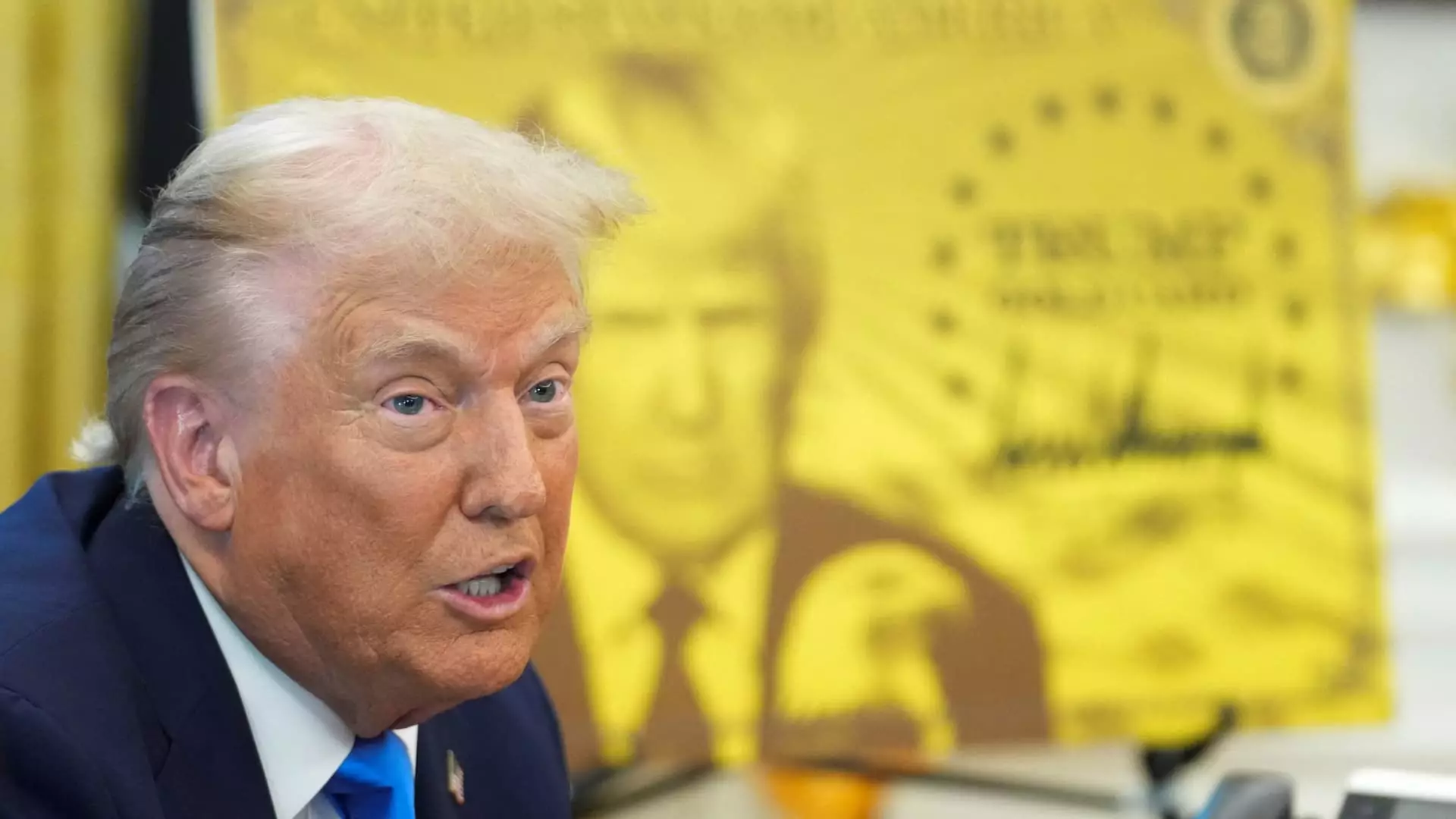The recent announcement by President Donald Trump to impose a staggering $100,000 annual fee on H-1B visas signals more than just a policy shift; it represents a fundamental threat to the backbone of America’s technological innovation. This move—launched without much forewarning—demonstrates a paradoxical attitude: the desire to tighten borders while risking the very workforce that fuels the nation’s competitive edge. In essence, this policy is not merely about immigration control; it’s an assault on the ingenuity, diversity, and economic vitality that migration has historically fostered within the United States.
By targeting the H-1B visa program—a pivotal pipeline for highly skilled immigrant workers, particularly from India and China—this administration risks crippling the country’s long-term technological leadership. Major corporations like Amazon, Microsoft, and Google employ tens of thousands of these highly educated professionals. These are not just workers; they are innovators, entrepreneurs, and problem-solvers who have contributed significantly to America’s global dominance in fields such as AI, cloud computing, and biotech. Instantly, these companies are thrust into a state of uncertainty, advising employees to remain in the U.S. or risk jeopardizing their legal status—a clear indication of how disruptive this policy could be.
The potential economic damage extends beyond immediate employment concerns. The policy raises profound questions about the long-term strategic vision of America—is it prioritizing hardline immigration policies over fostering an environment of innovation and competitiveness? In reality, it’s a step backwards. The United States has historically thrived precisely because of its openness to talent and ideas, irrespective of borders. An overzealous immigration clampdown undermines this national advantage, turning the country into a less attractive destination for the brightest minds around the world.
Of course, these policies do not impact only industry insiders. The human cost can’t be overstated. Families torn apart, careers derailed, and international collaboration stifled—all in the name of national security or political posturing. India’s Ministry of External Affairs has rightly pointed out the humanitarian implications, underscoring that such policies could destabilize families and hurt bilateral relations with countries that see the U.S. as a land of opportunity. The ripple effects extend into South Korea and other nations, with governments scrambling to evaluate how their citizens, who contribute to and benefit from the U.S. tech ecosystem, are affected.
Yet, amidst the chaos, some champions of the American dream still hold onto hope. They argue that policies should aim to strike a balance—preserving national security while recognizing the undeniable value of international talent. The fear is that overreach—such as imposing exorbitant fees—will not merely restrict legal immigration; it will create barriers nearly impossible to navigate for top-tier talent. This fear is reinforced by the silence from major tech giants, who recognize that their global competitiveness depends on access to skilled workers—a resource that cannot be confined within arbitrary borders.
Fundamentally, this strategy exposes a shortsightedness rooted in anti-immigrant sentiment disguised as national security. It disregards the complex interplay between innovation, diversity, and economic growth—elements that have historically defined America’s success story. If this trend continues, it threatens to turn what should be a beacon for talent and opportunity into a cautionary tale of insularity and decline, eroding the very foundation upon which American technological supremacy has been built.
The policy’s aggressive stance underscores an ideological shift that prioritizes restriction over inclusion, fear over opportunity. Such a move not only hampers the growth of leading technology firms but also diminishes America’s standing as a global leader in innovation. It reveals an alarming misconception: that securing borders defensively will secure the country’s future. In reality, it risks impoverishing the pipeline of global talent, leaving the U.S. vulnerable in an increasingly competitive world. The future does not belong to those who turn inward but rather to those willing to embrace diversity, talent, and the free exchange of ideas.

